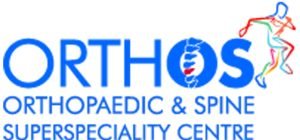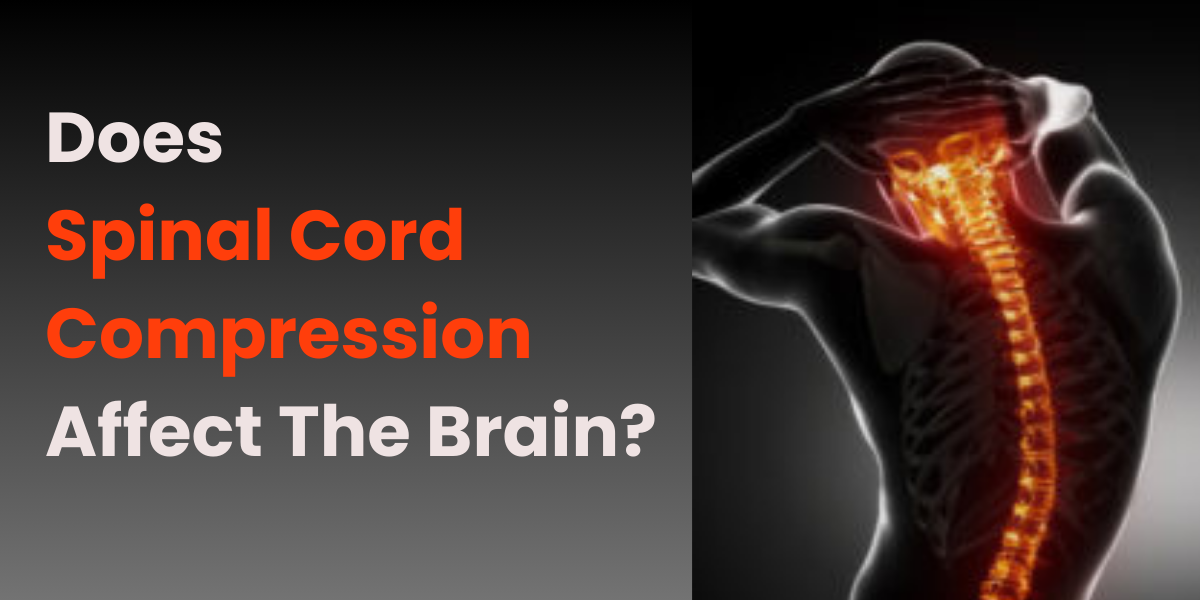How Does a Spinal Cord Compression Affect the Brain?
Spinal cord compression can affect the brain by disrupting the normal flow of signals between the brain and the rest of the body, leading to neurological symptoms such as weakness, numbness, and coordination issues. If left untreated, it can potentially cause permanent damage to the spinal cord and impact various bodily functions controlled by the affected nerve pathways.
How Does Spinal Cord Compression Affect Brain Function?
Spinal Cord Compression Effects:
Disrupts communication pathways between the brain and the body.
Leads to loss of movement, sensation, and bodily functions.
Cognitive and emotional impact:
Distortion or blockage of messages from the brain to the body.
Affects thinking, feeling, and responses to the environment.
Changes in memory, problem-solving, attention span, mood, and behaviour.
Neurological Miscommunication:
Results from a spinal cord injury.
Can vary in severity based on the type and extent of the injury.
Severity of Injury and Cognitive Changes:
Mild injuries may cause minimal disruption to normal brain functioning.
Severe injuries can lead to more significant impairments.
Sensory Loss:
Difficulty sensing heat or cold.
Reduced sensitivity to touch.
Cognitive and Emotional Impacts of Spinal Cord Compression
Spinal cord compression can lead to cognitive and emotional impacts due to disrupted nerve signals. Cognitive effects may include difficulties with concentration and memory. The emotional effects can vary, encompassing shifts in mood to manifestations of depression and anxiety, with the location and intensity of the compression frequently playing a role in influencing these impacts. Early detection and intervention are crucial for managing these effects.
Some of these cognitive and emotional impacts include:
Difficulty with planning
Language impairments
Emotional disturbances
Memory problems
Concentration deficits
Impaired problem-solving skills
How is spinal cord compression treated?
Discover effective spinal cord compression treatments at our leading spine rehabilitation center in Pune. Our expert team utilizes medications such as NSAIDs and steroids to alleviate pain and inflammation. Tailored physical therapy programs target muscle strengthening, while surgical options, including procedures like bone spur removal or spinal fusion, are considered for severe cases. Surgery is only recommended as a last resort after exhausting conservative measures. Experience comprehensive care for spinal health at our specialized center.
Medicines
Medication options often involve nonsteroidal anti-inflammatory drugs (NSAIDs) to alleviate pain and reduce swelling. Steroid injections may also be administered to address inflammation.
Physical therapy
Physical therapy plays a crucial role and may encompass exercises targeting the strengthening of back, abdominal, and leg muscles. Patients may learn safer ways to perform daily activities, and supportive devices such as braces or cervical collars may be recommended.
Surgical treatments
Surgical treatments may involve the removal of bone spurs, widening the space between vertebrae, relieving pressure on the spine, or repairing fractured vertebrae. In some cases, the spine may be stabilized through fusion of certain vertebrae. However, surgery is typically reserved for situations where other conservative measures have not provided sufficient relief.
Conclusion:
Spinal cord compression disrupts communication between the brain and the body, resulting in neurological symptoms and cognitive/emotional impacts. Severity varies, with mild injuries causing minimal disruption and severe injuries leading to significant impairments. Treatment, including medication, physical therapy, and surgery, is crucial for managing effects, emphasizing early detection. A multidisciplinary medical team, possibly involving a spine specialist in Punelike Dr. Shrikant Dalal, may be engaged in the treatment process at an Orthos Centre.


